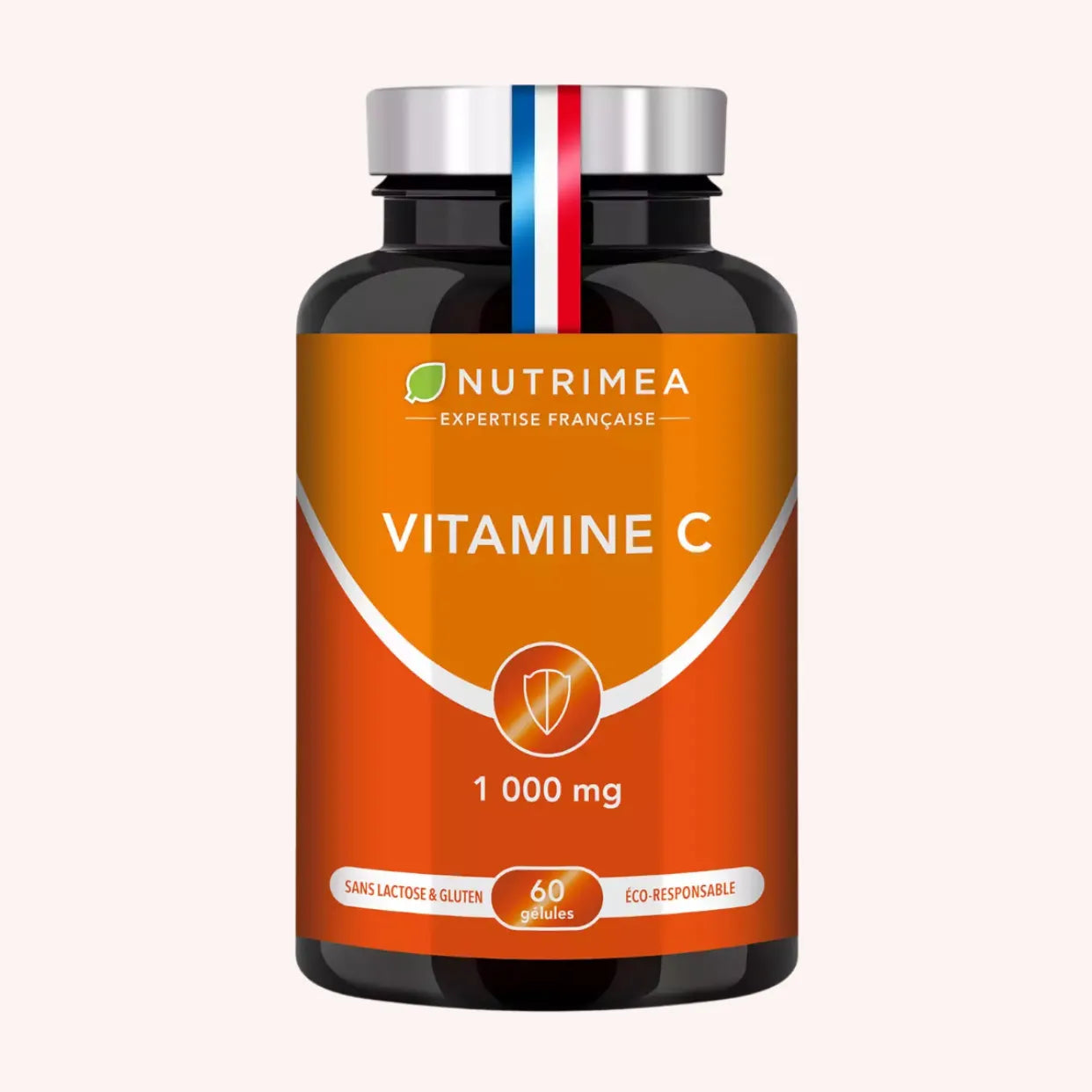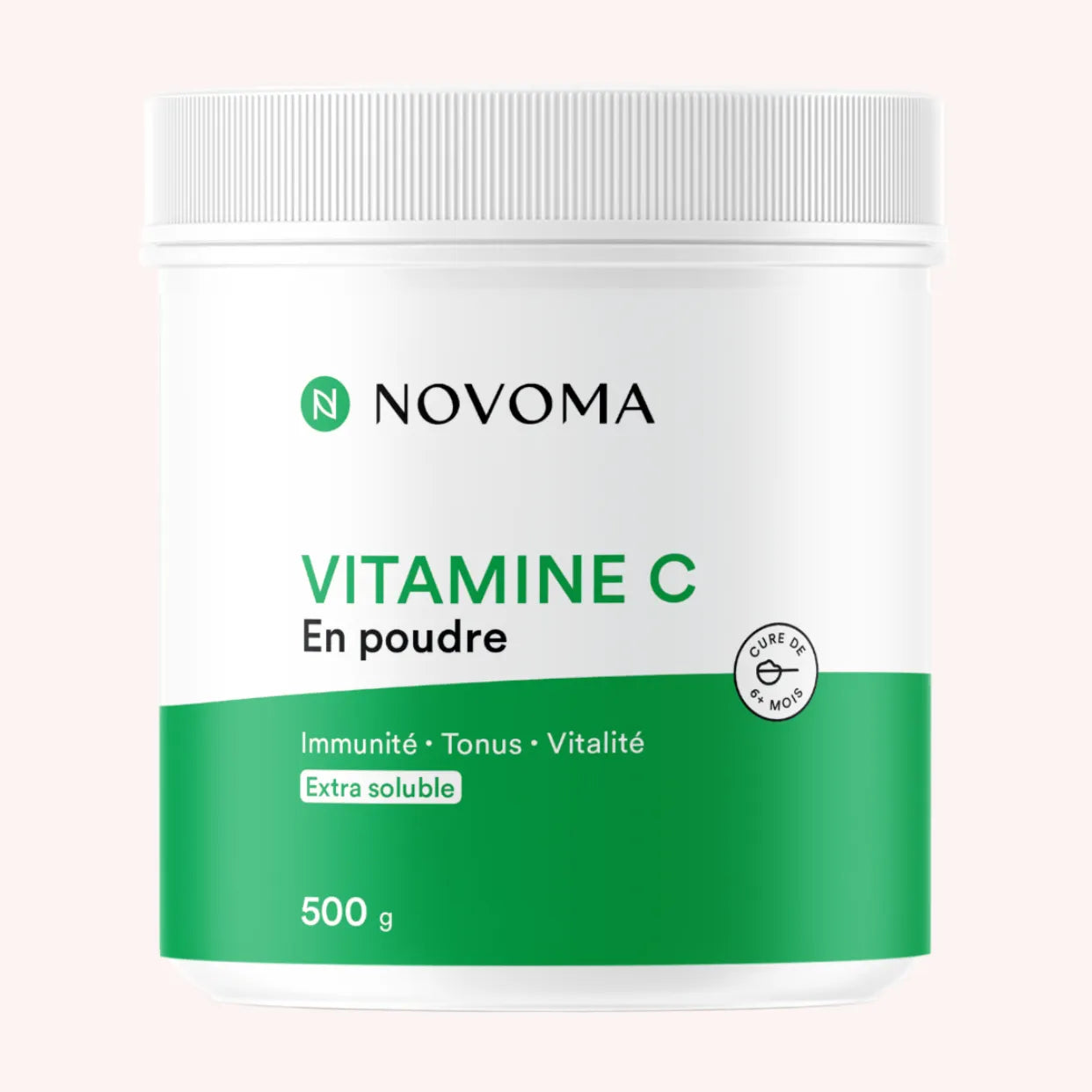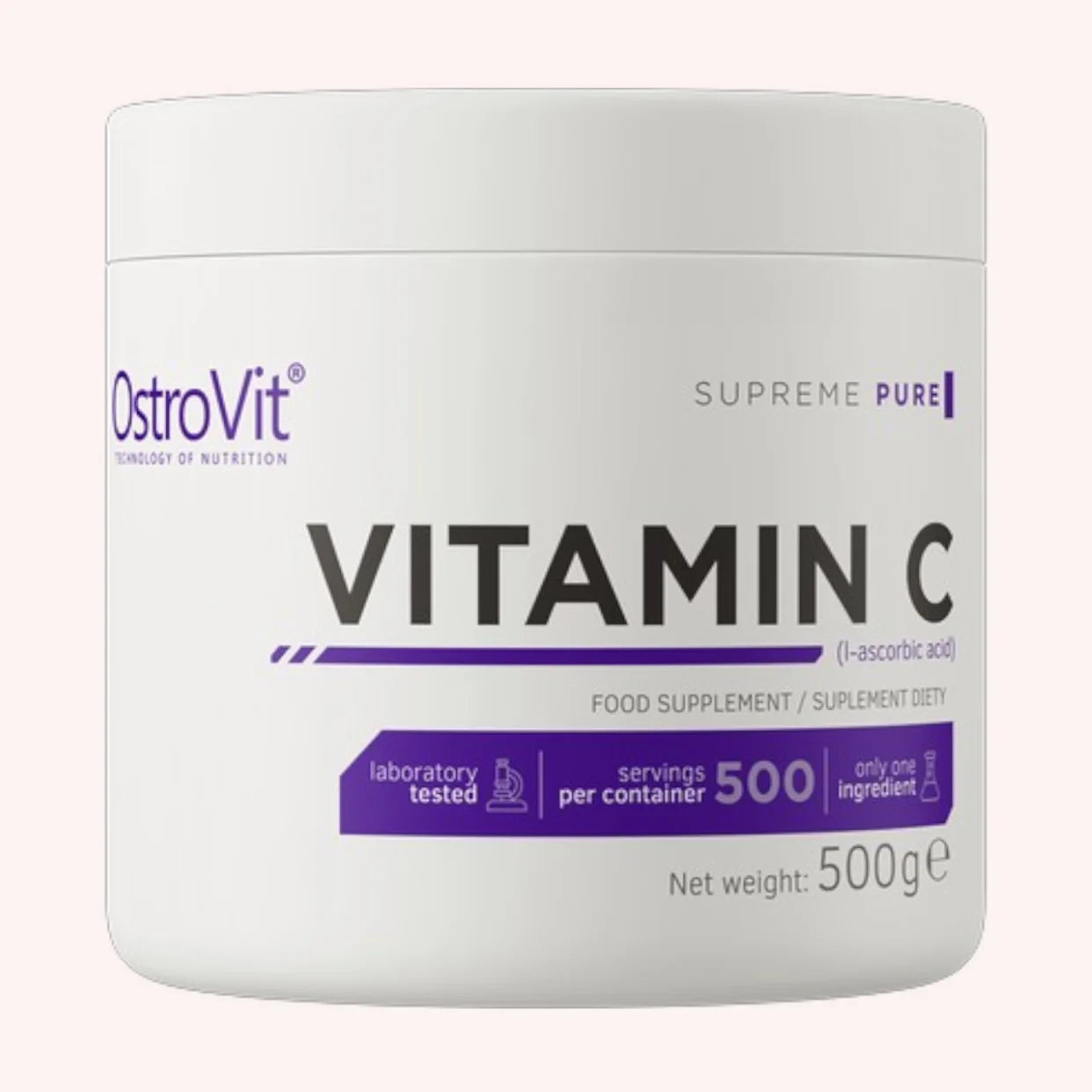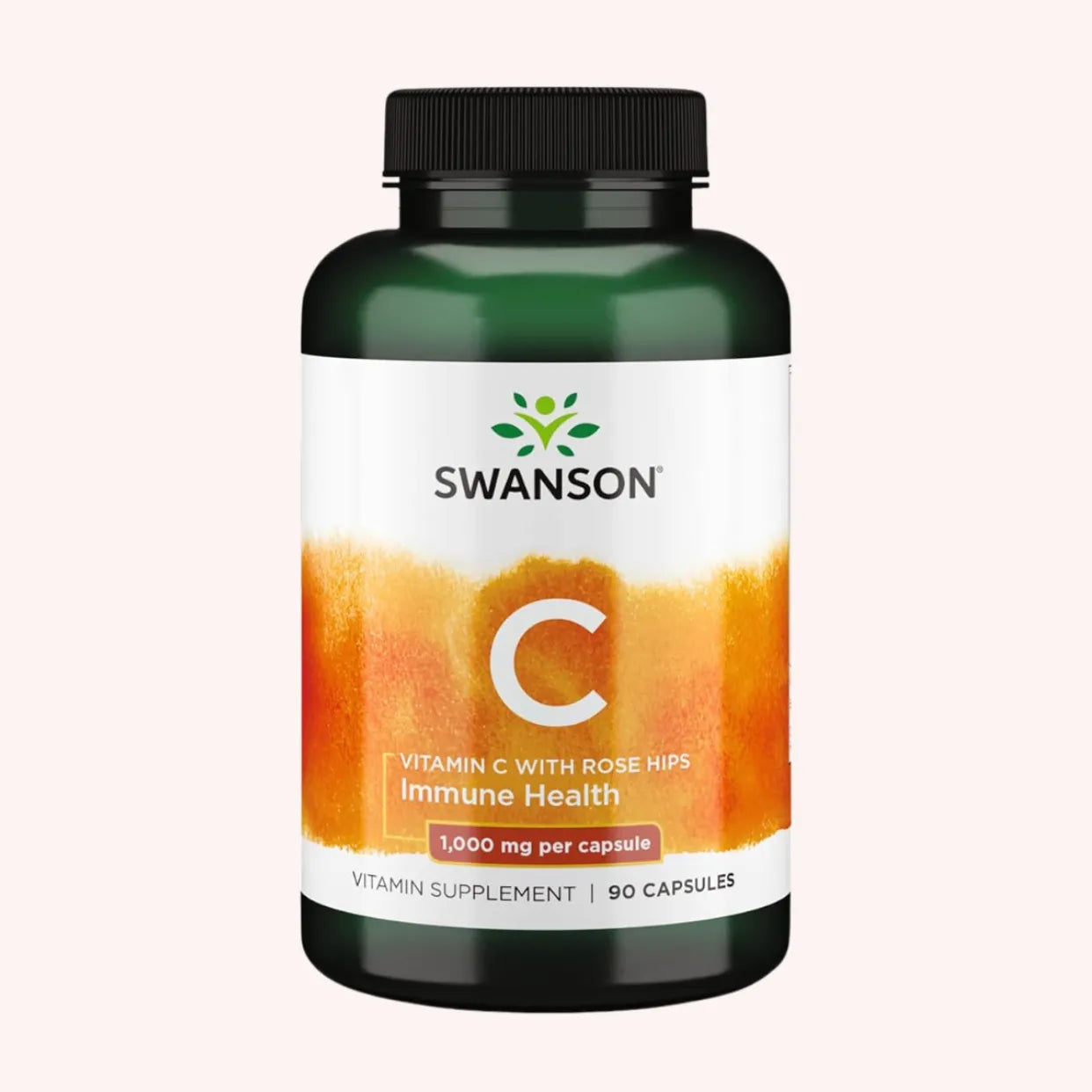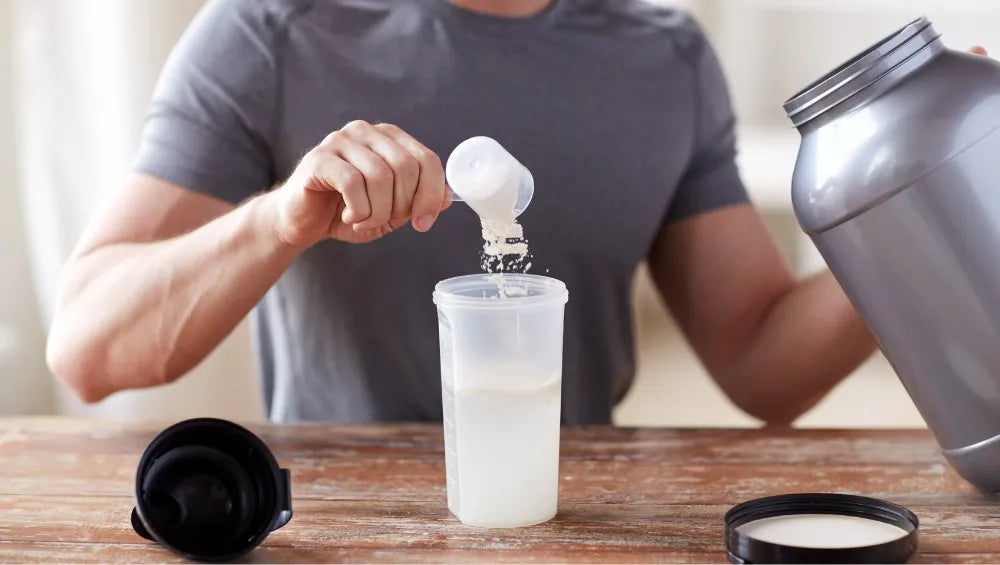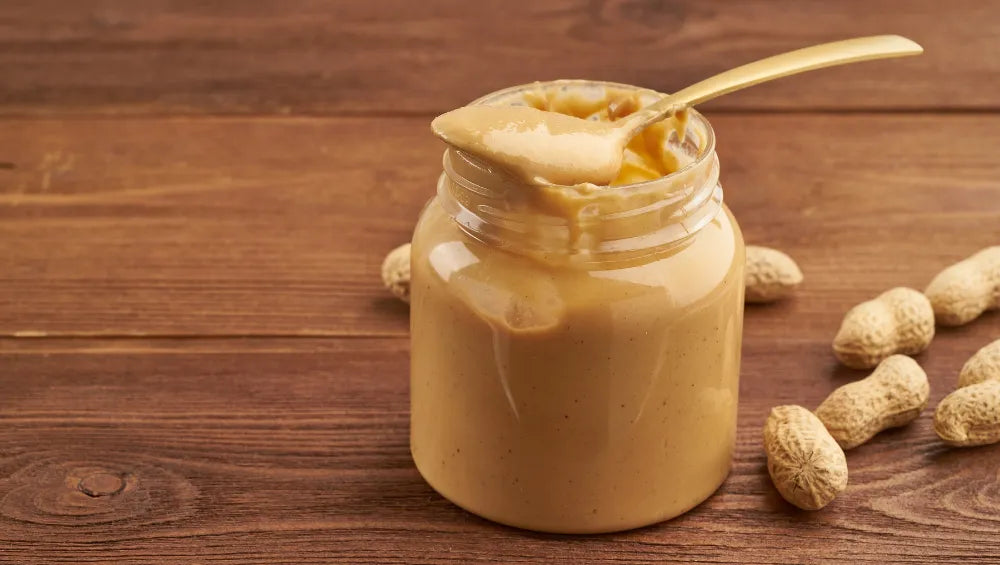Vitamin C , also known as ascorbic acid, is an essential vitamin for athletes, especially those looking for optimal performance and rapid recovery.
Since the human body can neither produce nor store it, it is necessary to obtain it daily through a varied diet. In this article, we will explore the best sources of vitamin C and how to maximize your intake.
Why is vitamin C important for athletes?
Athletes, especially those who practice demanding disciplines like bodybuilding or endurance sports, put their bodies under intense pressure. To maximize their performance and optimize their recovery, it's essential to adopt a suitable diet rich in essential nutrients. Among these, vitamin C plays a key role . It works on multiple levels to support the body and promote sustainable progress.
Improved recovery: Better managed fatigue
During intense training, the body's energy reserves are depleted, and micro-lesions form in the muscles being worked. These lesions, while natural, require recovery time to allow for optimal muscle repair and growth. This is where vitamin C comes in:
- Reduced muscle fatigue: It helps reduce the time needed for recovery by reducing muscle soreness and the feeling of exhaustion.
- Reduced inflammation-related damage: By accelerating cell regeneration, vitamin C allows for a faster return to training.
Athletes who include sufficient vitamin C in their diet often experience better fatigue management and improved performance during successive sessions.
Protection against oxidative stress: Preserving cells
Intense physical exercise increases the production of free radicals , unstable molecules that can damage cells and accelerate cellular aging . This phenomenon, known as oxidative stress , can negatively impact athletic performance, causing increased fatigue and a higher risk of injury.
Vitamin C, with its powerful antioxidant properties , neutralizes these free radicals , protecting muscle cells and limiting damage caused by exercise. Regular consumption of vitamin C thus allows athletes to maintain a healthy cellular balance, which is particularly beneficial during periods of intense preparation, such as before a competition.
In synergy with other antioxidants, such as vitamin E and zinc, vitamin C also supports the immune system , a key element to avoid the frequent drops in form after intense efforts.
Support for collagen production: Prevent injuries
Collagen is an essential protein for the health of tendons , ligaments and muscles . It ensures their elasticity and strength, qualities essential for supporting the repetitive loads and explosive movements inherent in bodybuilding or performance sports. However, vitamin C plays a central role in collagen synthesis .
- Strengthening joint and tendon structures: Optimal collagen production reduces the risk of injuries such as tendonitis or strains.
- Improved healing: In cases of injuries or micro-lesions, vitamin C promotes rapid recovery by stimulating the formation of new muscle and tendon fibers.
Athletes who train regularly will particularly benefit from this protective effect.
Optimizing iron absorption: Oxygenating muscles efficiently
Iron is essential for transporting oxygen in the blood. More specifically, it is involved in the formation of hemoglobin, which ensures the supply of oxygen to the muscles during exercise. However, an iron deficiency can lead to anemia , resulting in significant fatigue and a decrease in performance.
Vitamin C acts here as a natural amplifier , facilitating the absorption of plant-based iron , known as non-heme iron . This type of iron, present in foods such as legumes, spinach or tofu, is less well assimilated by the body than heme iron, which comes from animal sources. Incorporating a health food supplement containing vitamin C or combining foods rich in this vitamin with plant sources of iron allows athletes to optimize their oxygen intake, thus supporting their endurance and performance.
The Best Food Sources of Vitamin C
Tropical fruits: Guava, kiwi and papaya
These fruits are distinguished by their exceptional vitamin C content:
- Guava: With 228mg per 100g , it is one of the fruits richest in vitamin C. Its consumption is ideal as a snack after an intense sports session.
- Kiwi: Two kiwis (about 200g) provide nearly 185mg of vitamin C. They are also high in fiber, contributing to satiety and digestive health.
- Papaya: This tropical fruit, with 93mg per half fruit , is perfect in a post-workout smoothie.
These fruits can be eaten fresh or incorporated into fruit salads to diversify intake.
Citrus fruits: Orange, lemon and grapefruit
Citrus fruits are popular for their richness in vitamin C:
- Orange: One medium-sized fruit contains about 57 mg of vitamin C. Fresh orange juice provides a quick and refreshing option.
- Lemon: With 45mg per 100g , it is often used to flavor drinks. Lemon juice in fresh water is an excellent choice for hydrating before or after exercise.
- Grapefruit: Half a grapefruit provides 61mg of vitamin C , making it ideal for a light snack.
Red fruits: Strawberries and blackcurrants
Red fruits also provide a good amount of vitamin C:
- Strawberries: 100g of strawberries contain approximately 67mg of vitamin C. They are perfect with yogurt or cereal for breakfast.
- Blackcurrant: With 181mg per 100g , this fruit stands out for its richness in antioxidants. It is often used in the form of juice or coulis.
Vegetables rich in vitamin C
Peppers: Yellow, red and green
Peppers are true champions when it comes to vitamin C:
- Yellow pepper: With 184mg per 100g , it is a source of choice.
- Red and green peppers: They contain 159 mg and 121 mg per 100 g respectively. When eaten raw, they retain their maximum vitamin C content.
These vegetables can be added to salads or quickly sautéed to accompany a protein-rich meal.
Cabbage: Brussels sprouts, kale, and red cabbage
Cruciferous vegetable lovers will also find their vitamin C intake:
- Brussels sprouts: A 200g serving provides 206mg of vitamin C.
- Kale: This vegetable provides 145mg per 100g when raw, but cooking reduces this intake to around 41mg.
- Red Cabbage: This colorful vegetable, with 58mg per 100g , can be eaten raw to maximize its benefits.
Broccoli: A classic for athletes
Broccoli is valued for its versatility in cooking and its richness in nutrients:
- 106mg per 100g when raw.
- Even lightly steamed, it retains much of its vitamin C content .
Preserving vitamin C when cooking and storing
Since vitamin C is sensitive to heat , light and air, it is essential to adopt certain practices to avoid losses:
- Consume raw foods: Raw vegetables are ideal for preserving as much vitamin C as possible.
- Low temperature cooking: Opt for short steam cooking times to limit losses.
- Avoid prolonged exposure to air: Once cut, consume fruits and vegetables quickly.
- Store away from light: Keep your products in a cool, dark place to minimize degradation.
Incorporating vitamin C into a daily sports diet
Here are some practical suggestions for easily incorporating vitamin C-rich foods into your routine:
- Breakfast: Smoothie with kiwi, strawberries and spinach to start the day off right.
- Lunch: Pepper, broccoli, and red cabbage salad with a light lemon vinaigrette.
- Post-workout snack: Fresh guava or papaya.
- Dinner: Sautéed vegetables (peppers and broccoli) with a lean protein.
These combinations guarantee a continuous supply of vitamin C, thus improving recovery and sports performance.
Vitamin C and sports performance: A winning duo
In addition to its antioxidant effects, vitamin C optimizes the absorption of iron, a mineral essential for transporting oxygen in the blood. Improved muscle oxygenation results in increased endurance and reduced fatigue. It also contributes to tissue repair after exercise.
Vitamin C is a key nutrient for athletes, offering numerous benefits for recovery, performance, and overall well-being. By incorporating a variety of vitamin C-rich fruits and vegetables into each meal, it's easy to meet your daily needs. Whether you prefer citrus fruits, tropical fruits, or cruciferous vegetables, there are many ways to enrich your diet and maximize your athletic performance.
Sources:
- Ciqual – Nutritional composition table of foods : https://ciqual.anses.fr/
- ANSES – Vitamin C or ascorbic acid : https://www.anses.fr/fr/content/vitamine-c
- Johnston CS. Plasma-Saturating Intakes of Vitamin C Confer Maximal Antioxidant Protection. Journal of the American College of Nutrition, 2001 .: https://pubmed.ncbi.nlm.nih.gov/11771678/





